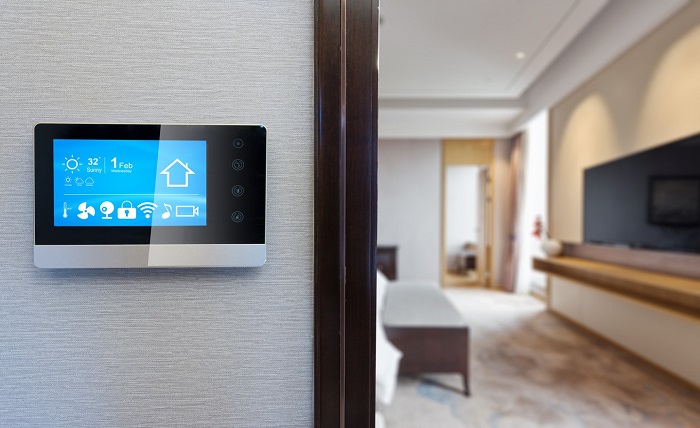What Security Risks Do Smart Home Gadgets Pose and How to Minimize Them?

With the advancement of technology, smart devices, and gadgets have become essential parts of our lives. They make it easier to do many tasks like turning on lights with voice commands, paying bills online, and even automating household processes. But as convenient as these technological advancements can be, they also pose security risks that you should not ignore. Hackers can gain access to your personal information or steal money from your accounts if they find a way into your connected home network. In this blog post, we’ll discuss what kind of security risks are associated with smart home gadgets and how you can protect yourself from them!
What are smart home devices and why have they become popular among homeowners?
Smart home devices are connected home automation gadgets that allow users to manage and control their home environment remotely. This includes controlling lighting, thermostats, security systems, and even appliances. Smart home devices are becoming increasingly popular with homeowners due to their convenience and the fact that they can save money on energy bills over time.
The benefits of smart home gadgets
Here are eight advantages that come with using smart home gadgets:
- Home automation and convenience: With a few clicks, you can control the temperature in your house, lock or unlock doors, adjust lighting levels, and even schedule tasks like watering plants.
- Remote monitoring: You can monitor your home from anywhere in the world with a smartphone or computer. This allows you to keep an eye on your home while you’re away.
- Increased energy efficiency: Smart home devices can help reduce your energy consumption, which can save you money in the long run.
- Peace of mind and safety: Connected gadgets allow homeowners to stay informed about what is happening in their homes, which can reduce anxiety.
- Improved comfort: Smart home gadgets let you customize your environment to suit your needs, such as setting the perfect temperature for sleeping or playing music in any room.
What security risks do smart home gadgets pose?
Smart home gadgets can pose a serious threat to the security of your home, and it’s important to be aware of the potential risks to protect your personal information and your home, which include:
Read more about bloxburg house ideas
Read more about Choosing Choice Home Warranty
1. Vulnerability to hacking
One of the biggest security risks associated with smart home gadgets is the potential for hacking. Hackers can gain access to your network and control your smart devices, from changing the temperature on your thermostat to turning off your security cameras. This not only puts your personal information at risk but also compromises the safety of your home.
2. Lack of security updates
Many smart home devices lack regular security updates to protect against new threats. This leaves devices vulnerable to attacks, as hackers can exploit weaknesses in outdated software. When purchasing a smart home gadget, it’s critical to research the manufacturer’s record on security updates before making a purchase.
3. Misconfigured devices
Another risk associated with smart home gadgets is misconfigured devices. Many homeowners set up their devices incorrectly, leaving private information exposed or connection points unsecured. It’s essential to read the manufacturer’s instruction manual and follow the setup procedures to ensure that your device is configured safely and securely.
4. Privacy risks
Smart home gadgets can also pose a threat to your privacy. These devices collect sensitive data about your daily routines, such as when you come and go from your house, and even your behavior while in your home. Companies can use this data for targeted ads or sell it to third-party marketers. It’s important to read and understand the privacy policy before purchasing a smart device and to limit the amount of data that companies can collect.
5. Lack of encryption
Encryption is a crucial security measure for smart home gadgets, as it ensures that your data remains private and secure. Some devices lack proper encryption protocols, leaving your information vulnerable to interception. Always check for devices that have end-to-end encryption to guarantee the safety of your data.
The best practices for minimizing security risks when installing and configuring new smart home
Here are 7 best practices to help you minimize the security risks of smart home devices:
- Stick with reputable brands: When purchasing a smart home device, it’s important to stick with established and trusted vendors. Always do your research before buying a product and make sure that the company has a proven track record of providing secure products.
- Read the user manual: Be sure to read and understand the user manual before installing a device. This will help you set up your device correctly, as well as familiarize yourself with its features and settings.
- Use strong passwords: Use unique, complex passwords for all of your smart home devices, and change them regularly. Make sure your passwords are not easily guessable and use two-factor authentication whenever possible. Your installer can do a security risk assessment and advise appropriately.
- Regularly update devices: Always keep your devices up to date with the latest firmware and software patches. This will help protect against potential security vulnerabilities.
- Monitor activity: Monitor your smart home gadgets for suspicious activity, such as unexpected activity or strange noises. If you notice any odd behavior, contact the manufacturer for assistance.
- Use encryption: Encrypting your data is essential for protecting your privacy and security. Look for devices that have end-to-end encryption to ensure that your information remains secure.
- Buy from reputable sellers: When buying a smart home device, only shop with reputable vendors. Make sure to read user reviews and ask questions about security features before making a purchase.
By following these best practices, you can better protect yourself from the potential security risks of smart home gadgets. It’s important to stay informed and up-to-date on the latest threats when it comes to online safety. So, if you’re looking to buy any smart home devices online, make sure you do your research first! This way, you can rest assured that your data is safe and secure.
Where to buy smart home gadgets online
Anytime you want to buy smart home gadgets online, make sure you shop from reputable vendors. Hot Home Gadgets is the go-to place for the latest and greatest smart home gadgets. They carry a wide variety of products from leading brands. Their online store is easy to navigate and provides detailed product descriptions for each item. Plus, their customer service team is always available if you need any help or have any questions. So when it comes to finding the right device for your home, be sure to check out Hot Home Gadgets!
By following these best practices and shopping with reputable vendors like Hot Home Gadgets, you can rest assured that your data is safe and secure while using smart home devices. Keeping yourself informed on security threats and taking proactive measures can go a long way in protecting yourself against potential threats.
Conclusion
Smart home gadgets offer numerous conveniences, but they also pose serious security risks. It’s critical to take proactive measures to protect your personal information and your home from potential threats. By researching the device’s security updates, configuring your device correctly, and limiting the amount of data collected by the manufacturer, you can enjoy the convenience of smart home gadgets without compromising your security. Stay informed and vigilant to fend off the ever-growing threat to your home security.



